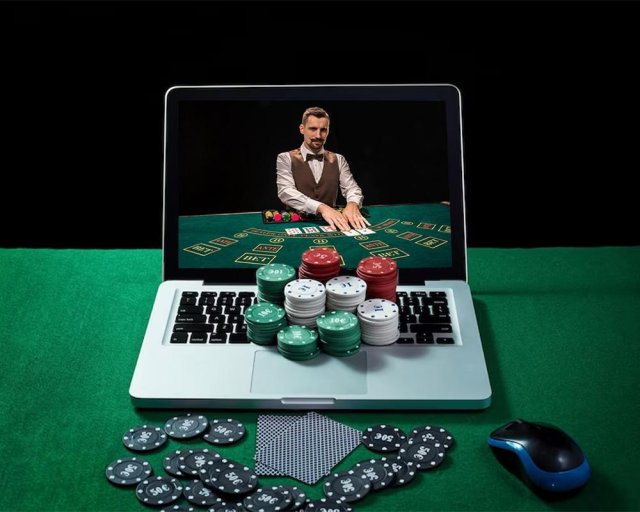|
|
 |
 |
| |
The Ultimate Guide to Successful Sports
Betting:
Tips and Strategies for Winning Big |
| |
|
|
| |
| Every bet has a winner, but it is still a fact that betting usually goes in the favour of the sportsbook.
Nonetheless, there are means to improve your possibilities of winning by using different systems and betting techniques. Each strategy is most effective when
coupled with a market that suits its nature, for instance, it will be better for team favourites to win, underdogs, accumulator bets, and total points/goals.
Below listed are some of the most successful betting strategies and systems with how they work and how they can be used to your benefit. |
| |
 |
| |
| |
Understand the Basics
Before you start your journey of
creating a successful online sports betting
company, you must first learn the basic principles of sports betting. This section will deal with the issues related to odds and probability, as well as the
usual types of bets one would make.
Exploring the Casino Connection
This guide is mainly
about sports betting, but still remember that sports betting and casinos are closely related. A lot of casinos have sportsbooks for their guests where they can
put bets on different types of sporting events. Besides, some sports betting techniques, such as arbitrage betting, are based on the fact that some bookmakers
offer different odds and hence, one can take advantage of that fact and make some profits.
According Aussie
casinos, this synergy between sports betting and casinos offers bettors additional opportunities to profit and adds an extra layer of excitement to the
gambling experience.
Developing a Winning Strategy
Developing a solid sports betting
strategy is crucial for long-term success. Let’s break down some key elements to consider:
1.
Bankroll Management
Decide on the amount of money you're willing to allocate for betting. Divide your bankroll
into units (e.g., 1% or 2% of the total) and maintain consistent unit sizes for each bet. Steer clear of chasing losses or going all-in on a single
wager. |
| |
| |
 |
| |
| |
2. Research and Analysis
- Gain insights into the teams, players, and their recent performances. Go beyond win-loss records by examining player injuries,
playing styles, and head-to-head matchups
- Analyse key stats like points scored, rebounds, turnovers, shooting percentages, and defensive efficiency. Historical data is
invaluable for identifying patterns.
- Take home-court advantage into consideration, as some teams perform notably better in their home environment.
- Acknowledge the impact of weather conditions (for outdoor sports) and venue on performance.
- Stay informed about injuries and line-up adjustments, as the absence of key players can significantly influence outcomes.
3. Types of Bets
- Wagering on the outright winner of a game.
- Betting on whether a team will cover the spread (win by a specified margin) or not.
- Betting on the total combined points scored in a game.
- Wagers on specific events within a game, such as player points, rebounds, or assists.
4. Avoid Emotional Bets
Ensure that
decisions are not driven by fandom or emotions. Stay objective and adhere to your strategy.
5.
Shop for Odds
Different sportsbooks provide different odds. Compare and select the most favourable lines for
your bets.
6. The Role of Psychology
The
psychology of sports betting is an art of many complex mental
processes that are the basis of our decision-making. In this world, risk perception is a major element of the psychological atmosphere. It is the concept that
deals with a thorough examination of the betting odds, thereby, requiring bettors to go through the possible outcomes. The art of risk perception is like a
sword with two edges, on one hand, it enables you to avoid missteps and on the other hand, it gives you the chance to take advantage of the
opportunities. |
| |
| |
 |
| |
| |
A sports bet usually has a big chance to be influenced by both reason and emotion, which directs the course of a
bettor's path. Feelings can be the source of the improvement of a strategy or the reason why it is destroyed completely. On the contrary, positive emotions,
when managed properly, can be allies, enhancing confidence and thus, making logical decisions stronger. On the other hand, negative emotions can be highly
problematic, making you lose common sense and making you do things impulsively. Keeping emotions under control is a must to navigate a constant way in the
unpredictable world of betting.
In sports betting, the human brain acts as a sharp instrument and a smart liar. Cognitive biases and distortions, the
so-called isolation, and complex shortcuts that are part of our thinking process, play a big role in our betting decisions. The illusion of control,
originating from the fact that we are always trying to control things, is usually hidden by rationality, thus, we overestimate our predictive
abilities.
These biases are like invisible hands that, although not visible, are still there and are influencing our decisions, thus, distorting our
perception of reality and confounding our judgment. The awareness and the elimination of these biases are the main things that are needed to improve analytical
thinking. The ability to distinguish real insight from distorted thinking can be honed by the people who are successful in picking the right bets, thus they
will be able to make the right predictions. |
| |
 |
| |
 |
| |
| |
|
|
|
 |
|